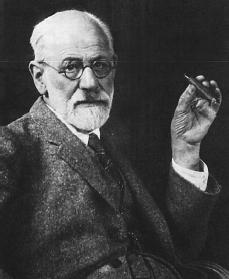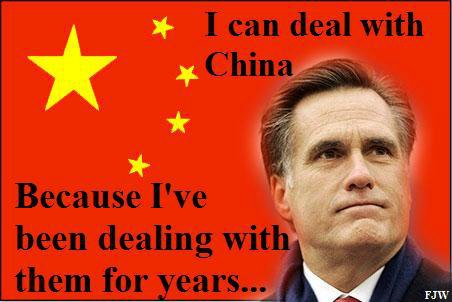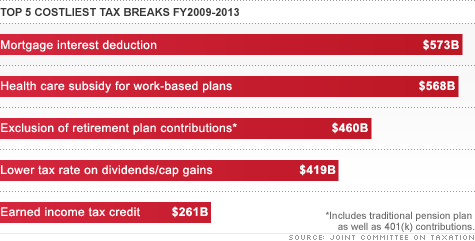In honor of Sunday morning, a prediction about Sunday morning
It’s Sunday morning, and we can expect that today’s morning talk shows will not be terse about the much-touted close and/or ‘tightening’ election. Close election is the moral indifferents’ ground game. It was their calling card; now it is their mantra. If it happens, it will be a defeat for the public.
Hence this article:
It is a given that pre-game armchair quarterbacking is going to be weaker than post-game ditto. But with due respect to some of the established journalists who get on air while people like me never do,* I still cannot understand the excessive chatter about a 2012 ‘close election’. If a close election is such a given, why do they talk about it so unceasingly? –They don’t keep reminding us that we have two major parties, one Democratic, you know, and the other Republican.

Professor Sigmund Freud and I hypothesize that in fact the hysterical insisters on a ‘close election’ fear that it might be, or might have been, otherwise. As Gertrude said, Methinks somebody doth protest too much.
(Freudian slip: When you say one thing but mean your mother.)
Summary analysis, so far as I can figure it out:
Some Washington insiders (as Chris Matthews called them, without irony) are making common cause with the Republican noise machine, up to a point.

A close election is a GOP win
They’re doing so not because they have a committed belief that rich-get-richer is the best fiscal policy, not because they have any fantasy that Mitt Romney will produce ‘jobs’, and not because they want all abortions, etc., illegal; quite the contrary. They are simply afraid on grounds of short-term self-interest to call an issue for the guy who’s winning it. Like other established but under-qualified persons, they’re not eager to see merit rewarded. It’s the gut response, when you don’t have guts.
Thus, while no one in his right mind could think that a Romney-Ryan administration would be other than economic disaster, we still have serious news people treating the GOP ticket as though it embodied gravitas. The same people insist on a close election.

Electoral map, 2008
As to the election, predictions are vain, of course. But we do have ‘facts on the ground’, a phrase deferred to ad nauseam in lip service, less in accuracy. Among tangibles, we have a popular incumbent president. Incumbency in every other national election in memory has been considered a fundamental by the national political press. The guys on the bus accorded incumbency fundamental status even with the troubled administration of George W. Bush. (They unceasingly touted GWBush’s ‘likability’, too.) In 2012, the incumbent is being challenged by a discredited party–the Republicans continue to lose in party identification. At the top of the ticket, the minority party has a lackluster candidate who has never been a powerful national figure. Romney’s unfavorables, for people who track that kind of thing, are near-record. The candidate has proven himself so willing to say anything, depending on audience, that virtually every adult citizen knows about the propensity. His defining visual, the Etch-a-Sketch quality, is a staple for late-night comics. Again, in any other election years the guys on the bus would have made a big deal of this kind of thing. (On the other hand, Romney’s flip-flopping has become such a given that it’s in danger of becoming passively accepted, and thus acceptable.)
Then there’s Romney’s vice presidential pick. The fact that Paul Ryan is still running for Congress suggests that he doesn’t see the upcoming election as a win for Romney.

Ryan gets pans for washing clean pots
Clearly, what should be reported most about the election is what it means for the country. A Romney win would be disaster, given the foreign-policy recklessness and domestic reverse-Robin-Hood the candidate has upheld during the campaign. Thus most political reporting is a loss from the get-go.
Even in narrowly political terms, however, the trend of much political reporting recently has been disturbing. Recent signs of the times have gone unstated or understated. Early voting is up in 2012–up even over the strong early vote of2008–and analysis of early voting consistently gives the advantage to Obama and the Democrats over Romney and the GOP. Swing state polls continue to give Obama the edge. Gaffes and missteps continue for the Romney-Ryan campaign. Opinion polls on the second debate give Obama the win, rightly. One poll is linked here; the consensus is advantage-Obama, from immediately post-debate to the present. Vice President Joe Biden is universally considered to have won in his appearance with Paul Ryan. Numbers from number man Nate Silver continue to give Obama the lead, as they have for months. A short article from Silver on occasions when Gallup has been the outlier is linked here. Virtually every electoral college map gives the win to Obama, and has for months, even while published opinion polls continue to undercount some demographics including cell-phone users. Even the published polls indicate that Obama sweeps the youth vote.
Yet with all the plus factors touched on here, and more, the Obama campaign itself has started doing what the John Kerry campaign did in 2004–focusing too much on a few swing states. This is a tactic too politically transparent and too liable to breed cynicism. It brings a danger that people will forget that the president governs, watching him campaign. There is a margin of diminishing returns. Look how it worked for Kerry.**
It’s great for the president to visit Florida, which needs all the help it can get. But the president should also come to Baltimore (and to Prince George’s County, Md.), go to Richmond, to New Mexico, and to North Carolina, time permitting. Also, Obama’s team is undervaluing the incumbent. Let him spend more time governing: New Orleans also needs all the help it can get. So does Arizona. So does New Jersey, for that matter. Look at N.J.’s governor. So do all the states and localities where vote suppression tactics are taking hold.

Lining up to vote early
Obviously I do not belong to the brigade of highly paid experts with a track record of winning (or losing) national campaigns. My views are offered here simply as those of a voter, a writer and journalist, and an observer. I am offering them not to fill up air time but because I think I’m right. Viz.: People in the rest of the U.S. don’t appreciate being ignored because a few less than truthful pundits are again pretending to consider ‘undecided voters’ seriously. The rest of the country doesn’t appreciate being ignored while up-and-down voters keep wobbling with every opinion poll. For that matter, it doesn’t make a handful of states feel all that special to be wired like paramecia under a microscope, within days of a national election. The nation is more important than they are, as on some level they themselves know.

Bainport, Illinois
Let the ground game take up some of the slack on the campaign trail. Admittedly, some who perceive themselves as strategists could perceive limiting swing-state visits as a disadvantage. GOP opponent Mitt Romney, after all, doesn’t have to spend his time and energy governing. He could visit Florida another twelve times. But that’s because Romney hasn’t been elected to anything lately. Let Fox News have its polls, let the same crew of Washington insiders who boosted the Iraq war boost ‘centrists’, a ‘close election’, and ‘undecided voters’. These are not people to be influenced by. After all, if we actually have a close election in this country, the press will have failed the public.
To sum up, the administration has a good record, and should run on it. One of the uglier examples of the big lie in election 2012 has been Romney’s pretense that the Obama record is one to run away from. The GOP, in contrast, has an execrable record. Any good television ad campaign could condense the mortgage-derivatives crisis in a few spots. We’ve got upside-down mortgages because we had an upside-down Wall Street. Financial insiders touted disastrous products for the public and got out with billions themselves, everybody else paid the price, and Romney-Ryan and the congressional GOP have banded together to protect the privileged. Their slogan: Prevent improvement.
*I have not tried to get on television.
**Qualifier: Kerry won Ohio in 2004. He thus won the electoral college vote; most of the same media figures touting a close election this time swept Ohio under the rug in 2004.

































